#vineyard irrigation
Text
Save Money and Energy: How Heat Pumps Can Lower Your Heating Bills
Are you tired of the constant battle with high heating bills during the colder months? As energy costs continue to rise, finding efficient and cost-effective heating solutions has become a top priority for many homeowners. If you're looking to save money on your heating bills while reducing your environmental impact, a heat pump Blenheim-wide could be the solution you've been searching for.
What is a Heat Pump?
Before we dive into how heat pumps can save you money and energy, let's first understand what exactly a heat pump is and how it works.
A heat pump is a heating and cooling system that transfers heat from one place to another, rather than generating heat directly. During the winter months, it extracts heat from the outside air (yes, even in cold temperatures) and transfers it into your home to keep you warm. Then, during the summer months, Marlborough Heat Pumpreverses the process to remove heat from your home and keep it cool.

How Do Heat Pumps Save You Money?
There are several ways that heat pumps can help you save money on your heating bills:
Higher Efficiency: Heat pumps are known for their high efficiency. Unlike traditional heating systems, which generate heat by burning fuel, heat pumps simply move heat from one place to another. This means they can provide the same amount of heat using much less energy, resulting in lower heating bills.
Lower Operating Costs: Because heat pumps are so efficient, they have lower operating costs compared to traditional heating systems. In fact, according to the U.S. Department of Energy, heat pumps can reduce your heating bills by up to 50% compared to electric resistance heating.
Dual Functionality: One of the biggest heat pump Blenheim benefits of heat pumps is that they can both heat and cool your home. This means you only need one system for year-round comfort, rather than separate systems for heating and cooling. Not only does this save you money on installation costs, but it also reduces the amount of energy you use overall.
Long Lifespan: Heat pumps are built to last, with an average lifespan of 15 to 20 years. This means you won't have to worry about replacing your heating system as often, saving you money on maintenance and replacement costs in the long run.
Other Ways to Maximise Savings
While heat pumps are already incredibly efficient, there are a few things you can do to maximise your savings even further:
Invest in a High-Efficiency Model: When shopping for a heat pump, look for models with a high SEER (Seasonal Energy Efficiency Ratio) and HSPF (Heating Seasonal Performance Factor) rating. These ratings indicate how efficient the heat pump is, with higher ratings meaning greater energy savings.
Proper Installation and Maintenance: Proper installation and regular maintenance are key to ensuring your heat pump operates at peak efficiency. Be sure to hire a qualified HVAC technician to install your heat pump and schedule regular maintenance to keep it running smoothly.
Use a Programmable Thermostat: A programmable thermostat allows you to set your heat pump Marlborough to automatically adjust the temperature based on your schedule. This can help you save even more money by reducing energy usage when you're away from home or asleep.
Seal and Insulate Your Home: To maximise the efficiency of your heat pump, it's important to seal any air leaks and properly insulate your home. This will help prevent heat loss and keep your home comfortable year-round.
In Conclusion
If you're tired of high heating bills and are looking for a more cost-effective and energy-efficient heating solution, a heat pump could be the answer. Not only will a heat pump save you money on your heating bills, but it will also reduce your environmental impact and provide year-round comfort for you and your family. So why wait? Make the switch to a heat pump Blenheim today and start enjoying lower heating bills and greater energy savings!
Source - https://cuddon1.blogspot.com/2024/05/save-money-and-energy-how-heat-pumps.html
#heat pump blenheim#irrigation marlborough#blenheim engineering#engineers blenheim#vineyard irrigation
0 notes
Text
springtime growth is huge this year
i'm going to need to mow the orchard just so the chickens don't get lost
#i try to do no mow may#but parts of the yard have to be mowed just so i can set things up#like the irrigation for the orchard trees#or mow by & in the vineyard so it's not overtaken
3 notes
·
View notes
Link
#Australia#axiallysplitcase#energy-efficiency#irrigation#PumpStation#Sulzer#vineyard#Water#watermanagement#watersupply
0 notes
Text
While Palestinians have gone thirsty, Israelis had more than enough water to go around. The daily supply to Israelis and Jewish settlers is three to five times greater than to the average Palestinian household, whose consumption is almost 30 percent below the minimum amount recommended by the World Health Organization. Since they are all connected to Israel’s water network, the settlements have access to unlimited and highly subsidized resources; they can always fill their swimming pools and irrigate their vineyards, even during the region’s scorching summers.
Under the 1995 Oslo Accords, Israel is entitled to siphon off a full 80 percent of the West Bank’s groundwater and 100 percent of the surface water from the Jordan River Basin. The limited allocation of 15 percent to the Palestinian Authority (PA) has not accommodated the massive growth in population in the Occupied Territories, which today is home to 75 percent more residents than at the time of the Accords’ signing. Mekorot, the Israeli water company, controls almost all of the distribution, and its monopoly ensures that water does not flow anywhere without its say-so. Not unpredictably, this stark power to turn on and off the tap is being used to accelerate the rate of Jewish settlement: without steady access to water in their villages, rural Palestinians are being pushed off their land and into the overbuilt and overcrowded cities.
506 notes
·
View notes
Text
A Modern Understanding of Dionysus Hestios

Photo from a vineyard I worked on.
[ID: A close-up image of a Chardonnay white-wine grapevine with three clusters. The clusters are green with some red. Bright green leaves cover the top of the clusters, while below a black irrigation line is visible. The ground below is covered in woodchips, except for a single plant below the clusters].
HESTIOS IS A FUN YET OBSCURE EPITHET OF DIONYSUS. We can infer some of its context due to Zeus Hestios, that being a protector of the home and hearth. This epithet of Dionysus is a favourite of mine—for my home and hearth, he is a household deity as I am a viticulturist and winemaker. My life and livelihood is partially bound by grapevines as I currently work at an orchard that is establishing a vineyard and my responsibility is to make it happen.
The context of this epithet is little known beyond a passage in Pausanias’ iconic Description of Greece:
Pausanias, Description of Greece 1. 2. 5 (trans. Jones) (Greek travelogue C2nd A.D.) :
"From the gate to the Kerameikos [in Athens] there are porticoes . . . containing shrines of gods, and a gymnasium called that of Hermes. In it is the house of Poulytion . . . [which] in my time it was devoted to the worship of Dionysos. This Dionysos they call Melpomenos (Minstrel) [i.e. of Melpomene, the muse of tragedy], on the same principle as they call Apollon Mousegetes (Leader of the Muses) . . . After the precinct of Apollon is a building that contains earthen ware images, Amphiktyon, king of Athens, Dionysos Hestios (Feasting or Of the Hearth) and other gods. Here also is Pegasos of Eleutherai, who introduced the god [Dionysos] to the Athenians. Herein he was helped by the oracle at Delphoi, which called to mind that the god once dwelt in Athens in the days of Ikarios."
Dionysus Hestios is mentioned in Athens, along with his myth of his devotee Pegasos bringing his cult to the city. Other than references to Zeus Hestios, I have not found any more context for this epithet beyond protecting the home/hearth. Therefore, this aspect of him will be a contender for a strong upg basis.
In my times in wine, I’ve gathered my own gnosis of Dionysus Hestios. He is a protector of the hearth, but in my personal experience, the table wine aspect of Dionysus.
TABLE WINE IN THE MODERN WORLD
Table wine is named exactly for what it is, a wine that sits at your dinner table and a key part of a meal. Italy especially is famous for its cheap table wines, many of which I’ve had at my own tables and dinners. Most commercial wines these days are made to be drinkable on their own—while table wines are uncomfortable and harsh on the tongue. With food, they transform, turning these harsh and bitter wines into something truly enjoyable. It also makes the food taste better. For anyone unknowing, that’s why wine and food pairing is a thing. Unfortunately, the table wine market is slowly beginning to crumble—most modern wine drinkers enjoy more of a good tasting drink instead of a complement of one’s meal. If you have the chance, I recommend buying some and trying it in pairings—it’s a dying market, sadly, and one that has an ancient history behind it.
While table wines slowly fade, there is always a place for them in our lives. I myself have fond memories of a terribly bitter wine being served at my family’s table, and while I hated the taste, I’ve come to fall in love with them in recent years. Dionysus Hestios as a god of the home is a god of table wine, the happy smiles and festive memories of people having their Chianti with some steak or pasta. It’s the thrill of a good food pairing, a decanter, and the hundred years history of people making wine for the common folk instead of just for the aristocrats and their “noble” grapes.
Dionysus Hestios,
Hearth warmer, master
Of your craft, joy becoming
Protect our heart and wine,
Let us dance and joy,
Under your blessings
Of the woody grapevine.
References
DIONYSUS CULT 1 - Ancient Greek Religion. (n.d.). https://www.theoi.com/Cult/DionysosCult.html
#dragonis.txt#dionysus deity#dionysos deity#dionysus worship#dionysos worship#dionysus devotee#hellenic pagan#hellenic polytheism#hellenic paganism#paganism#witchcraft#witchblr#vinum
281 notes
·
View notes
Text
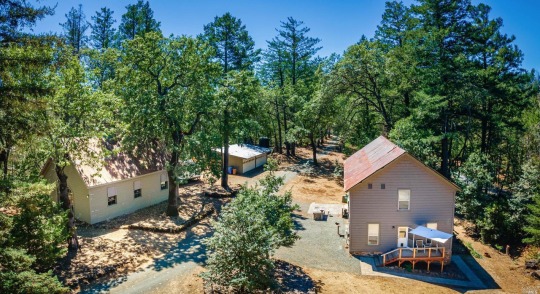

So, yesterday, we saw a huge modern, all-white estate vineyard in Napa, California. Today we have another Napa Valley vineyard in Helena, California, but this one is very different. Actually, the other one was kind of boring, and this one is unique. The carriage house dates back to the 1880s. The main house has 3bds, 2.5ba, and costs a lot less at $3.25M. (The other one is $22M.)

Isn't this nice? A sunroom and pergola with vines.

Clearly, this is a rustic style home with a high vaulted living room ceiling, and a stained glass window.

There's a lofted space above the living room, which is very nice as well.

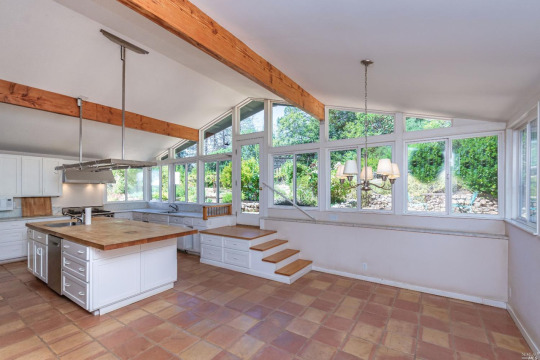
The large kitchen is light and airy.

This looks like a workroom or office and it has a great fireplace that looks like it was well-used.

Looks like a family room.

The primary bedroom is a good size.
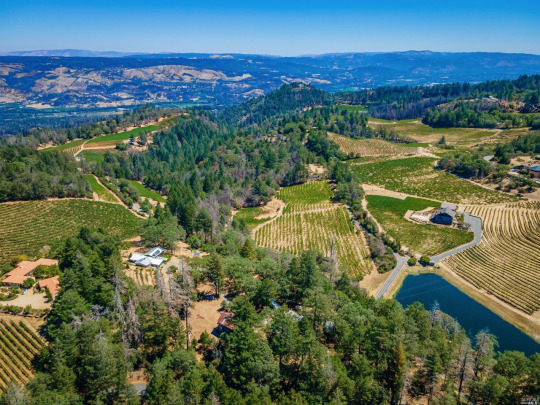
There are about 4.59 acres of property with the vineyard.

But, where the other property was just vineyards, this is where this property gets interesting, b/c it ain't just grapes.


Check it out- it has a cave, b/c this property was also a winery. The cave is protected by heavy wooden doors and iron gates.
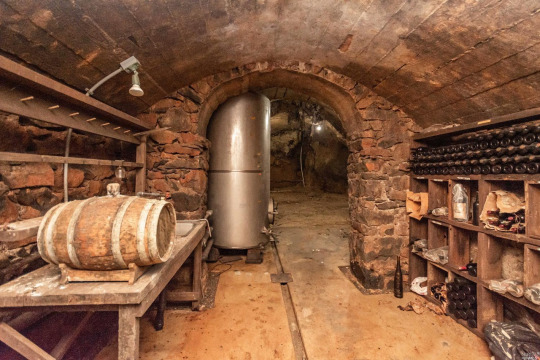
This was a serious winery. Look at the bottles and supplies, plus the fermenting equipment.

This is cool.

The fermenting tanks look in pretty good shape.
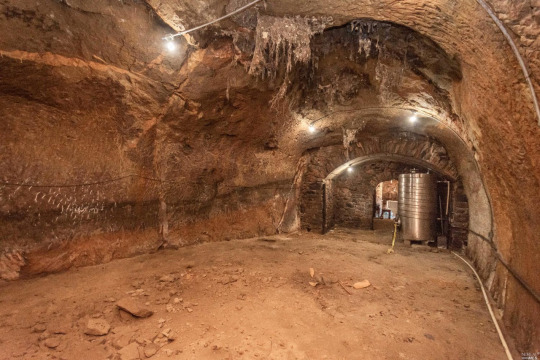
Remember that this cave dates back to the 1880s. It's ancient.

Look at these delicious grapes. Every fall I wait for the stores to have Concord grapes b/c my grandparents had a huge grapevine and they were so good.
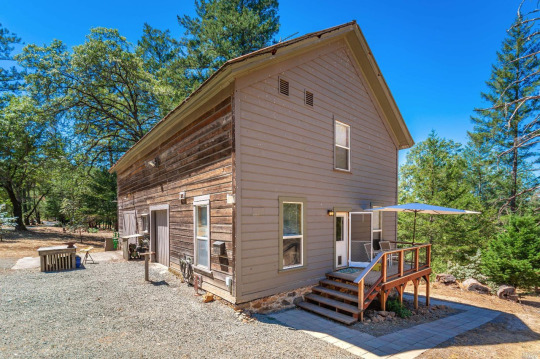
There's a barn on the property, but it looks like there's an apt. above it.
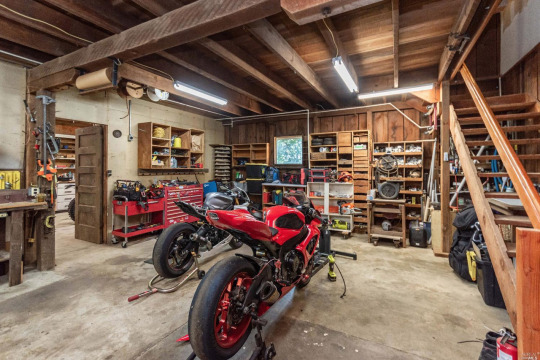
Workshop in the barn.
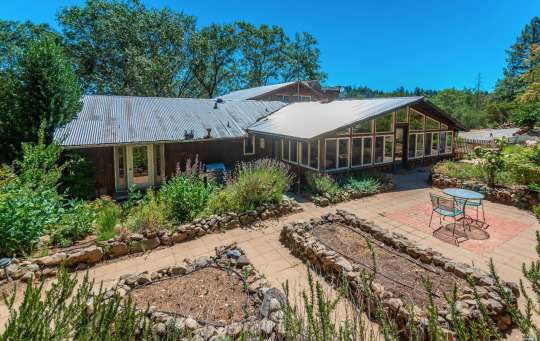
The main house has a large patio with growing beds.

I'm thinking that this rusted old tractor is art?
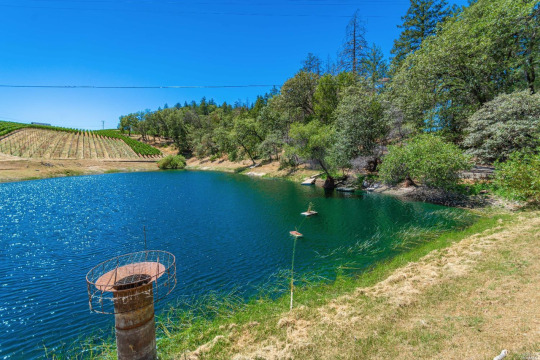
Looks like a pond. Maybe for crop irrigation.
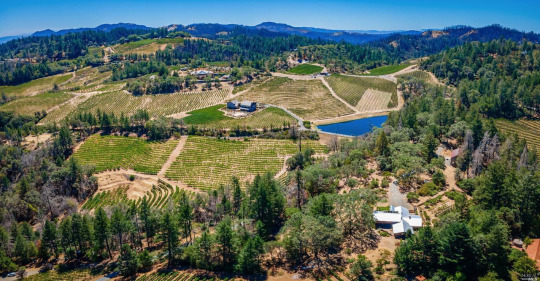
The house, on the bottom right, is surrounded by many neighboring vineyards.
79 notes
·
View notes
Text
The Vine Intervention
🍷🍇 A Klaus Hargreeves story? 🍇🍷

A/N: This little fic was written for the @tua-masked-author MerMay 2023. Thanks to @non-plutonian-druid @kawaiic0mmunism and @littlerit for putting on such a great event and well done to all the writers and artists for your submissions. I’m pretty sure everyone knew this was me - apparently the Robert Sheehan quote gave me away (curses!) It was great fun to take part though and writing this very silly, cracky AU one-shot helped to shake off the cobwebs. 😘😘
CW: None. Unless you’re religious, in which case probably loads. Don’t @ me.
Words: 1,700
SNIPPET: The other vineyard owners in the area hate him and Klaus knows it. It’s a common point of gossip that Klaus’ grapes are all riddled with disease and his irrigation system has long since corroded from lack of maintenance.
And yet, somehow, year after year, Paradise Springs produces some of - if not the - finest non-vintage wine on the planet. The critics rave about it on their blogs. Sommeliers around the world insist on including it on their menus.
They compare him to Martin of Tours, the patron saint of winemakers, the man said to have spread viticulture throughout the Loire Valley during the fourth century.
Of course, little do they know, that was him then too.
Read the rest on AO3
Reblog to give the author tender headpats: @badsext @softforklave @anglophile-rin @neist @purblzart @maerenee930 @firstpersonnarrator @allisoooon @cemeteryklaus @super-unpredictable98 @courtneytarynofficial @mokolataddict @pickledbeefwastaken @love-is-dirty-baby @rina-cydonia @inspiremeandsetmefree @jender123 @vonkimmeren @sylvertyger @merrilark @rob-private @pietro-t1me @not-oscar-wilde @squishitude @falafel14
#robert sheehan#the umbrella academy#klaus hargreeves#tua#umbrella academy#klaus umbrella academy#diego hargreeves#klaus tua#klaus Hargreeves fic#tua klaus#klaus Hargreeves fanfic#klaus Hargreeves fanfiction#rob sheehan#tua netflix#tua au#dailytua#Diego Hargreeves fic#klaus and Diego#Diego and klaus#tua fic#tua fanfic#tua fandom#crack#au
62 notes
·
View notes
Text

✾ chapter 2 — magic
❧ Summary: The way Elain and Lucien discovered their mating bond was perhaps not ideal, and the road towards falling in love and accepting their feelings full of thorns — but throughout challenges and adversity, they have made it work. Now, eternity awaits them.
A series of connected ficlets for Elucien Week 2023, set post the end of the series when all villains are gone, following episodes of Elain and Lucien's sometimes quiet, sometimes agitated, life together.
For @elucienweekofficial
Read on Ao3! • Chapter one
Built on the shores of a glistening turquoise sea, Haemera was a thing of beauty: the lower city rested on white sands like shells on a beach, painted in bright white colors and with gilded roofs. The quays of the rectangular harbor speared the calm, deep water of the sea, where ships from all over the world came to moor, seeking knowledge only the Day Court held. The libraries and the palace district themselves, as well as the Temple of the Risen Sun and the sprawling estates of the nobility, lay perched atop the cliffs, ever-haloed by the blazing sun.
Velaris was the City of Starlight, but Haemera was the City of Sunlight — the entire metropolis shimmered in different colors as the sun rose and set, yellow and orange and pink and purple. When the sun was at its brightest, the white paint seemed to reflect all the colors of the rainbow.
Yet, for all its beauty and bustling activity, Elain and Lucien had elected to move away from it. After years in court, they wanted their own private space, far from prying eyes. Phoebe and Helion had not been keen on the idea, discontent to part with their son and daughter-in-law, but eventually, the four of them came to an agreement.
So Helion gifted them ownership of the Red Palace and all its surrounding lands. It was located on the outskirts of Haemera, far enough that the city walls and its lights were no longer seen, but close enough as to be reached by winnowing once. The construction stood on the slope of a hill flanked by sprawling vineyards and olive trees, a ruby set against the verdant earth, its intricate mullioned windows and latticed walls making for an airy but intimate space.
And the courtyards. The Red Palace had more courtyards than Elain knew what to do with, fountains and pools of water with ivy climbing the elegant columns and archways. They were positioned strategically to allow sunlight and the salty breeze to sweep in, and she could not wait to make every one of them more beautiful than the next.
She had, of course, immediately invited Nuan to see what mechanical improvements she could think of for the Palace's irrigation systems.
“This is insanity,” Nuan said with a shake of her head, taking a look at Elain's elegant handwritten scrawled all across the parchment.
Elain huffed, shifting in her seat. “Well, no need to be so blunt. It's merely an idea.”
“An insane idea.” Nuan put down the parchment and removed her glasses, pinching the bridge of her nose. “It has been tried before, you know? In the continent, in the long lost fae city of Ashnan.”
“I do know the legend, thank you very much. Ashnan, the City of Pillars, whose fae dug too deep and too hungrily into the sands for water to feed their mighty projects and awakened something they should not, unleashing a maelstrom that dragged the city to a grave at the core of the world.” She waved a hand, wrinkling her nose. “We were told this story as babies as a cautionary tale of greed — ours and the fae's.”
“And even though you know how Ashnan ended, you still want to try and recreate its hanging gardens?”
“I don't want to recreate the hanging gardens of Ashnan, but rather something inspired by it.” Elain picked up her teacup and sipped the warm apple tea. “Besides, the Red Palace is hardly Ashnan. There's water aplenty, no need to dig so deep, and we are not trying to commit folly against the very laws of the world. Which, I believe, might have more to do with the city's downfall than the gardens proper. But most importantly, they didn't have you to think about the mechanics of it all.”
Nuan snorted. “This is madness.”
“Perhaps it is.”
“It will take years to be completed ”
“Most likely.”
“It will also be costly.”
“Not a problem. The treasury is overflowing.”
“And it will require the brightest, most brilliant of inventors and crafters to pull it off.”
“Good thing then she's a friend of mine and is sitting right in front of me, isn't it?” Elain set down her cup, a smile breaking across her face.
The other female let out a deep sigh and got up, leaning over the plans and Elain's annotations with furrowed brows.
“To recreate the work of the ancients into something everlasting…” She rubbed her chin with her thumb, biting her nail, thoughtful. The corner of her mouth lifted. “Yes, that is doable, I think.”
“You will do it then?” Elain asked, eyes lighting up.
“Elain, please. I made that decision the moment you first unveiled your plans.” She smirked at Elain, playful and mischievous, the gears in her head already turning, working full speed. “You will need my special kind of magic to pull this off. Why, someone else may get it wrong.”
༻ ❁ ༺
After Lucien and Elain were well settled in the palace and the main living areas properly redecorated and renovated, Helion and Phoebe invited themselves to stay the whole week. The Day Court, Helion said, wasn't so unstable and devoid of administrative talent so as not to handle one week without its High Lord and High Lady.
Elain woke just before dawn, when the sky was still that deep, fathomless blue darker than any black, broken only by the distant reds, oranges, and purples of daybreak. Soon the sun would rise and chase the shadows away.
She was a light sleeper, had always been, and their time living in the cottage had accustomed her to rising with the birds and the wildlife. In Velaris, Elain hadn't let go of her old habits, not in the least because the early morning was the only time of the day the Inner Circle wouldn't be around and she could enjoy some moments alone with her thoughts.
Seldom did she sleep the morning away, and even rarer did she stay awake late at night: that was reserved for when there were parties and revelries.
Elain turned on the bed, coming face to face with her mate. Lucien was still soundly asleep, shirtless, his chest rising and falling with the tranquil rhythm of his heartbeat. Much like her, he was an early riser and a light sleeper, one forged by necessity, by a lifetime on high alert, expecting a blade between his ribs.
Though he probably wouldn't wake up anytime soon today, Elain reckoned with a chuckle. Lucien had tried — and utterly failed — to beat Helion in a drinking contest and had to be carried to bed like a baby. She ought to ask Feyre to paint two canvases of the scene so she could give one to Lucien and one to Helion.
With a contented sigh, she rose, pulling away the gossamer curtains that separated her dressing room from hers and Lucien's chambers. Her handmaids were nowhere to be seen, as Elain demanded they only start fussing over her after the sun was already up and high in the sky. Mother knew that if they tried to follow Elain's sleeping schedule, they'd get no rest at all.
She grabbed her pink silk robe from a hanger put it on, tying it around the waist with a ribbon. Then, she left the room through the side door, emerging directly in front of one of her moon gardens. The sweet scent of night-blooming jasmine and the newly bloomed rhododendrons clung to the air, carried by a tranquil breeze.
Elain crossed the garden, running her fingers over the marble edges of the fountain, coming to stand at a balcony overlooking a sheer drop in the hill. Down below, the laborers were already up, all set to start harvesting the ripe grapes. She leaned on the balustrade, resting her face on her hand, and closed her eyes.
She stood like that for a while, listening to the nightingales sing, the wind whispering as it brushed through the vines, the rushing streams sneaking through the nearby woods.
Footsteps echoed in the hallway and she opened her eyes, turning to where they were coming from.
Helion grinned at the sight of her, shining faintly on the half-light. She smiled back in response and moved aside, making way for him to stand beside her.
“That habit of yours remains?” He inquired, searching her face.
“It seems like I'm doomed to awake at dawn or in the early morning, no matter my best efforts.” Elain lifted her shoulders, long since resigned to her fate. “And what of you? Is the Lord of Day out to bring daylight for us fae or did you just not sleep?”
“You know quite well that telling the sun when to rise and set is far beyond my powers, though I might be able to light up the night for a time if I tried hard enough,” Helion answered with a chuckle. “No, my dear. As you are doomed to awake early, so am I doomed to sleepless nights. It has grown better with my Phoebe with me but… We all have our demons.”
Elain said nothing, staring at the horizon as the light blue color of the morning skies began to emerge and the sun hung over the land like a crown, allowing a companionable, deep silence to settle between them. She could never understand the depth of Helion’s scars, torn away from his mate for centuries and trapped beneath the darkness of the middle, watching helplessly as Amarantha slaughtered his kin. Lucien still had nightmares from it; she assumed Helion did, too.
“Sometimes when it is too dark and too quiet, I fear falling asleep,” she confessed, tightening her grip on the red stone. “I keep thinking that if I sleep, he will be back, waiting in my dreams with that terrible, terrible magic of his, playing with my sense of self until I can no longer distinguish what is real and what is not.”
“Is that why you closed yourself off to your visions?” Helion asked, the famous day court curiosity getting the better of him.
“In part,” Elain admitted, “but not solely because of it. The future is always in motion, always changing. Few things are set in stone. You pull a thread and suddenly, a whole other path opens. Some futures are dreadful, nightmares only. Others are the opposite. Still, constantly seeing ahead can become a burden, and I’m done living in what-ifs and could-have-been.”
Helion threw his head back with laughter. “Who needs those when we have this moment, this beautiful palace and our mates with us, a whole future ahead? I think we are quite well served, aren’t we, my dear?”
“Yes.” She stood on the tip of her toes and breathed in, releasing the balmy air with a chuckle. “And I wouldn't change it for nothing.”
Her father-in-law watched her carefully, with slightly narrowed eyes, calculating his words.
“I wasn't going to give you both this palace, you know,” he said slowly. “I planned to give you both the Sunburst House in the eastern district, where I resided in my younger years, before the war.”
Elain furrowed her brows, head askew. “And why didn't you?”
“Lucien asked for this place instead — he thought it was fitting. You should ask him yourself why he thought that, though. Perhaps there's a reason to it you do not yet know.”
༻ ❁ ༺
“Not that I’m complaining about waking up like this, love, but would you mind explaining?” Lucien asked, mirth dancing in his russet eye.
Elain lay above him, her knees beside his torso and her long, thin, callused fingers wrapped around his hands, pinning them to the mattress just beside his ears. Her hair fell over her shoulder in unbound waves, casting a shadow over the pale skin of her shoulder blades visible from her loose silk robe.
She didn’t look very happy though, not with her squinting brown eyes and pink mouth twisted into an annoyed pout.
“Your father said you asked for this palace for us. Why?”
“Elain!” He gasped, faking outrage. “Gossiping with my father already? So early in the morning?”
“He isn’t the one keeping secrets from his mate!”
“That you know of, perhaps.”
Elain gasped and sat on his belly, leaning down, a flush spreading across her cheeks as she brought her nose close to his. “What is that supposed to mean?”
Lucien chuckled, closing his metal eye and turning his head. “That is for you to figure out.”
“Lucien! That isn’t fair!”
“Neither is ambushing me like this, is it now?” She pressed down on him and he groaned, heat gathering between his tights. “Now you are just being mean.”
“I have a reason.” She said with a little smirk, seemingly satisfied with the reaction she elicited. “Now, the truth: why this place?”
“It has lovely gardens, it’s far enough from the city to allow us some privacy whilst being close enough to return for emergencies, the wine weather is excellent and it's a beautiful, historical building that is well suited to us.”
She rolled her eyes, clicking her tongue. “Well, yes, but I already know all this. Helion wouldn’t have mentioned it to me if there wasn’t more. So please, Lucien—” Elain let go of one of his hands, placing a finger on his lips. “— won’t you tell me?”
He closed his eyes, taking in a deep breath, cursing his father inwards. Lucien had planned to tell Elain the whole story of the Red Palace eventually as a part of a grand romantic gesture to celebrate the anniversary of their mating. He still had a treasure trove of ideas for the date proper, but it would require some maneuvering and improvisation. Perhaps he ought to ask Nuan for — no, she would just murder him for the added commission in her already full agenda. Vassa and Elain’s sisters, then.
And his mother, if only so she could give Helion grief for ruining his carefully laid plans.
“I didn’t mean to keep it a secret,” he said, “but the right time to speak about it was never right. Not for me, in any case.” Lucien waited to see if she was going to say anything, but Elain only watched him with her honey gaze, patient and attentive. “Right. So, many centuries ago, long before the war, one of my ancestors, High Lord Hyperion, was arranged to marry a Princess from the continent, Nahida. Their partnership wasn’t a happy one at first. Nahida didn’t speak our dialect, nor did she know much about the Day Court and its traditions. No matter how much her husband tried, she felt like an outsider in what was supposed to be her new home.”
Elain gulped, lower lip trembling. Lucien raised his hand, tucking a stray strand of her hair behind her ear.
“Hyperion was an honorable man, determined to keep his vows to the Mother to love and cherish his wife. But how could he, when Nahida had wrapped herself so thoroughly in her own misery, not allowing anyone close? There had to be something he could do. Hyperion went to the Oracle of Mount Astreus, the highest of peaks between Day and Night, and asked how he could show his wife his sincerity? But you know how prophecy works.”
“A riddle wrapped inside an enigma encased in a question,” she agreed with a wet laugh.
“Yes, and one even Hyperion, with all his libraries and knowledge under his domain, couldn’t unveil. It was not until he saw Nahida gazing wistfully at a desiccated lotus, the symbol of her homeland, that he understood that more than anything, his wife missed her home. He wrote to his sister-in-law, asking for her best architects and masons. Hyperion had the Red Palace built in secret and after it was done, he brought Nahida here.”
“And what did she say? What was her reaction?”
“By then, years had passed them by and Nahida had learned the language of her new home, if not perfectly. She was speechless, at first, staring at this little piece of her homeland nestled on the slope of the hill, but when Hyperion went to his knees before his knees and poured his heart out, Nahida broke down into sobs. She threw her arms around him and they both cried for all the time they had lost. Then, they decided to make the most of the years ahead, to fill this palace with happiness and laughter and joy. My family likes to say that the magic of their promise will cling to these walls until we are no more.”
“Oh Lucien,” Elain pressed her eyes close, tears streaming down her cheeks. “I didn’t know. I shouldn’t have pushed.”
“I know you didn’t. I had a whole plan to tell you about it, or at least the beginnings of one.” He offered her a tremulous smile.
“I would have liked to see it too.” She bit her lip and glanced at him from under her thick eyelashes. “Will you pretend you never told me this story and tell me again the way you planned? All your plans for the future, all your hopes, and dreams, all the magic in these halls — will you share it with me? ”
“Only for you, Elain,” he whispered reverently against her lips, wiping away a tear with his thumb. “Only for you.”
#elain archeron#lucien vanserra#elucien#elucienweek2023#acotar#a court of thorns and roses#my writing#shout out to imbutimmortal for reading this over
31 notes
·
View notes
Text

Ch. 17: Cherry
Read on AO3 | Read from the beginning
It’s been a wet kind of summer. The rains started early after spring and persisted until the tail end of June, unusual for this time of year. The air is thick and humid, as if moving through water, and the sky hangs dull and heavy above the valley.
For the most part, Patroclus has been working in the vineyards of the area, along with the throngs of other seasonal workers that arrive in Phthia for every harvesting period. It’s hard work, but Patroclus has never minded physical labour overly much. More than anything, he’s glad that the exams are done and over with; if his mind had to retain yet one more piece of information, it might explode.
Bees buzz merrily around him as he clips the grapes from the vines and tosses them in his basket. His back is aching and the sweat stings his eyes; there’s only a few more minutes until the end of the work day. Patroclus is looking forward to a cold drink of water and an even colder shower. He woke up at six this morning to ride his bike all the way here; the vineyard is quite far out, past Atreus' farm and across the Spercheios river, miles upon miles of wheat and alfalfa fields with their deep irrigation ditches. Grape harvesting pays slightly better than other jobs, but you can't work too fast or the fruits will be bruised. Employers don't like that.
Some days, like this one, when the sun burns bright above them and there isn’t the reprieve of rain clouds hovering above, Patroclus wonders if he’s making things way too hard for himself. Peleus all but assured them that he would pay for any and all expenses he and Achilles would have during their move to the capital, and more besides, but Patroclus feels better knowing that he won’t be relying entirely on Peleus’ charity. His savings will be just about enough to cover his personal expenses for the first couple of months, until he finds another job there. Patroclus considers that a win; he thinks it will be good for him to be a little bit more independent.
He returns with his basket filled to the brim and a procession of bees in tow, then lines up along with the others to receive his pay for the day. Most of the workers are undocumented immigrants; the job pays five bucks per hour and there are no papers to sign, no tax deductions. They're all paid under the table, in cash.
Patroclus accepts the bills with fingers darkened by dirt and sticky with sap, and slips them in his pocket.
He gets on his bike and pedals fast down the dirt road. A quick stop by the house for a shower, a change of clothes and a snack, and he’s off again. The others must already be at the basketball court, probably already a couple games in. Achilles must surely be among them, obliterating the opposing team’s defences.
He had found Patroclus’ decision to work for most of the summer odd. He didn’t tell him as much, never tried to dissuade him, but Patroclus could tell from his baffled frown and the words he held back that the notion of working the summer before college never once crossed his mind. Not out of laziness, but out of a lack of need. What use was there to waste his time working in someone else’s fields, when his father owned so many of his own?
“It’d be a conflict of interest,” he’d told Patroclus with an easy smile. “Bad for business, you understand.”
Patroclus had laughed and they’d said nothing more about it, but the tinge of disappointment in Achilles’ eyes every time Patroclus has to miss one of the boys’ outings or basketball games is impossible not to notice. Perhaps it grates a little at Achilles, the same it does at him, that they aren’t spending all of their time together like they used to, like they have done every other summer since Patroclus came to Phthia. That they aren’t racing with their bikes down the empty dirt roads, leaving clouds of dust in their wake, or reading dusty books from Peleus’ library underneath the shade of the willow tree at the shed. That they don't... exist together as naturally and effortlessly as they once did.
But things aren’t quite the same between them now as they were back then. Since their row in the garage, Achilles has been a little quiet and aloof around him, not quite as eager to monopolise his time and company. And in the span of two months, Patroclus has been to the shed with Achilles all of five times and to the beach only once. During those times, he was careful not to linger too long, not to let the conversation drift towards… dangerous places. Not to sit too near, lean too close, touch. No funny business.
It’s all for the best, Patroclus knows. The right and sensible thing to do. The line they’ve been walking with all of this has been far too thin; it was only a matter of time before it all blew up in their faces, surely, before someone found out or before their friendship started unraveling because of it. But he still can’t shake the feeling that he’s missing something essential, that he’s fucked up somehow. He doesn’t know how to fix it.
The echo of the ball’s dribble and the scattered conversations reach him before Patroclus turns the corner to the basketball court. It’s rather busy now that the sun has fallen a bit, and the bleachers are half full, younger kids from school or from the next village over. He spots Briseis and the other girls up on the third row, giggling amongst themselves as they watch the game.
Briseis waves happily at him. “Took you longer than usual,” she tells him as he comes to sit next to her. “Does the future of Phthia’s winemaking rest solely on your very capable shoulders?”
Read the rest on AO3!
#patrochilles#achilles#patroclus#the song of achilles#tsoa#hades game#modern au#patroclus x achilles#achilles x patroclus#johaerys writes
15 notes
·
View notes
Text
“Wherever they went, the monks introduced crops, industries, or production methods with which the people had not been previously familiar. Here they would introduce the rearing of cattle and horses, there the brewing of beer or the raising of bees or fruit. In Sweden, the corn trade owed its existence to the monks; in Parma, it was cheese making; in Ireland, salmon fisheries and, in a great many places, the finest vineyards. Monks stored up the waters from springs in order to distribute them in times of drought. In fact, it was the monks of the monasteries of Saint Laurent and Saint Martin who, spying the waters of springs that were distributing themselves uselessly over the meadows of Saint Gervais and Belleville, directed them to Paris. In Lombardy, the peasants learned irrigation from the monks, which contributed mightily to making that area so well known throughout Europe for its fertility and riches. The monks were also the first to work toward improving cattle breeds, rather than leaving the process to chance.1”
- Thomas E. Woods Jr., Ph.D., “How the Monks Saved Civilization,” How the Catholic Church Built Western Civilization
—
1. Henry H. Goodell, "The Influence of the Monks in Agriculture," address delivered before the Massachusetts State Board of Agricul ture, August 23, 1901, 22. Copy in the Goodell Papers at the Uni versity of Massachusetts. 8,9.
7 notes
·
View notes
Text

We look forward to welcoming you to the Château.
🏰🥰🙋♀️🙋♂️
We started with the project Your wine 🍷 Your piece of Mallorca 🏝7 years ago. Our #grapes are the #malvasiaaromatica #macabeo #cabernetsauvignon #mantonegro and #syrah.
Weinfeldsineu.com produces a #redwine and a #whitewine under #ecological standards with as little irrigation as possible. As a result, the grapes are smaller, but much more flavourful and form a good basis for our wine. Since we ourselves are not winemakers, we cooperate with an experienced #winemaker from #Mallorca. The result is a combination of #passion and expertise, from which a new fantastic wine is created. You can be through a #grapevinesponsorship part of this project.
🍷🍇🍷🍇🍷🍇 #rebenpatenschaft #rotwein #weißwein #weinstock #ökologisch #sineu #weinberg #ecofriendly #winelover #vineyard #handpickedwines #vino #ワイン #affiliatemarketing #weinfeldas #blancdenoir
2 notes
·
View notes
Text
How Engineers Revolutionize Residential and Commercial Infrastructure
Engineering plays a pivotal role in shaping modern infrastructure, encompassing both residential and commercial properties. The impact of engineers Blenheim is far-reaching, as they are responsible for designing, creating, and maintaining the spaces in which we live and work.
In this article, we will explore the significant contributions of engineers to revolutionize residential and commercial infrastructure, from innovative designs to sustainable initiatives.
Engineering Innovations in Residential Infrastructure
Engineers have been at the forefront of designing sustainable and eco-friendly residential buildings.
By utilising innovative materials and construction techniques, they ensure that modern residential projects not only meet the highest safety standards but also minimise environmental impact. Their focus on safety, efficiency, and comfort has led to the creation of residential spaces that prioritise the well-being of occupants.
From advancements in insulation materials that improve energy efficiency to the integration of renewable energy sources like solar panels and geothermal heating systems, Engineers Blenheim continuously strive to push the boundaries of residential infrastructure.

Transforming Commercial Infrastructure through Engineering
When it comes to large-scale commercial developments and skyscrapers, engineers play a crucial role in creating functional and visually striking spaces.
The influence of engineers extends to the employment of cutting-edge technology, resulting in commercial structures that are not only architecturally impressive but also highly efficient in their operations. Iconic commercial buildings around the world stand as testaments to the engineering excellence showcased in their design and construction.
Beyond the aesthetic appeal, engineers incorporate advanced systems for climate control, lighting, and waste management, optimizing resource utilization and reducing environmental impact.
The Integration of Smart Technology by Engineers
Engineers have been instrumental in integrating smart technology into both residential and commercial infrastructure.
By doing so, they have enhanced the efficiency of energy usage, improved security measures, and provided unparalleled convenience for occupants.
Real-world examples demonstrate the seamless integration of smart systems, showcasing the adaptability of modern buildings to the ever-evolving technological landscape. Smart building management systems allow for real-time monitoring and control of various building functions, optimising energy consumption and reducing operational costs.
Furthermore, advancements in sensor technology and data analytics enable predictive maintenance, ensuring that potential issues are identified and addressed proactively, thereby minimising downtime and maximising occupant comfort.
Environmental Sustainability Initiatives Led by Engineers
Within the realm of sustainability, engineers have taken the lead in promoting environmentally conscious initiatives within residential and commercial projects.
Their innovative approaches, including green roofs, solar panels, and rainwater harvesting systems, have significantly contributed to reducing the environmental impact of buildings while simultaneously increasing their overall value.
These initiatives represent a forward-thinking mindset that addresses the pressing need for sustainable practices in construction and infrastructure development.
Conclusion
In conclusion, the work of engineers is fundamental in revolutionising both residential and commercial infrastructure. Their contributions extend beyond the physical structures, encompassing the safety, sustainability, and technological advancements that shape the built environment.
It is imperative for readers to appreciate the intricate work of engineers and recognise the impact they have on the spaces we inhabit and utilise on a daily basis.
Whether it's the eco-friendly residential buildings we reside in or the iconic commercial structures that define city skylines, engineers Blenheim continue to redefine what is possible in the realm of infrastructure.
Their dedication to innovation, sustainability, and technological integration ensures that the buildings of today and tomorrow stand as testaments to their expertise and commitment to excellence.
Source - https://cuddon1.blogspot.com/2024/04/how-engineers-revolutionize-residential.html
#heat pump blenheim#irrigation marlborough#blenheim engineering#engineers blenheim#vineyard irrigation
0 notes
Text
Given the heat in Scrantz, any self-respecting noble family must have a pool in which to bathe and cool down, but fresh water is in short supply and reserved for the irrigation of the vineyards. Faced with this problem, a family ancestor decided that, rather than put work into redirecting what little water flow was available, they would ask a wizard to find a better solution.
That solution was a pedestal beside a pool at the family manor. Most of the time the pool sits empty, covered by an ornate grating. When a damp hand is run over the opals on the pedestal and an incantation recited, however, water fountains into the pool through various spouts. After use, rub a handful of dust -- always in plentiful supply in Scrantz -- over the opals and speak the corresponding word. The water is redirected through concealed conduits to water the rose garden.
It works through the use of a Decanter of Endless Water hidden within the pedestal and modified with the Control Water spell. The other Houses considered it a profligate waste of money at the time, but they don't object to having a cool, private oasis when on formal visits to Scrantz in the height of summer. The local temple objects more strongly, since they consider fresh water to be holy and argue that the pool is a blasphemous mockery of their own Sacred Waters.
2 notes
·
View notes
Text
Traditional Combrian Settlers
Library of Circlaria
Blog Posts
Article Written: 10 September 1452
The area encompassing present-day Layda had previously been sparsely populated by a variety of people including Great Northerners, Kitalans, and indigenous groups. However, it was the Combrians, arriving in the 1190s and early 1200s, who began to transform the landscape.
Initial Settlement

Map of Remikra, 1206
Termed "land-carvers" by the local population, the Combrians, indeed, used their innovative hubstone-powered machines to change the landscape drastically in ways never seen before. There were three types of Combrian settlers: the ranchers, the rangers, and the farmers.
The ranchers raised livestock, primarily horses and cattle. They lived in a variety of places and were better able than farmers to settle in the semiarid regions, provided that underground water was available. Ranchers in these dry places used hubstone powered seismic-shockers to determine if there was underground water, and used hubstone drills to extract the water. There were also ranchers in the grasslands and in the mountains; and ranchers in the Magnumarian Shield were known for raising eagles.
All of these domesticated animals were used by others for a variety of purposes, so there was a lot of trade between fellow ranchers as well as farmers and rangers.
The rangers, on the other hand, did not have settled pieces of land to call home. They roamed the region in either all-terrain vehicles or airships that also served as their homes. Rangers gathered food from various practical sources, and made their revenue collecting and trading various items of value. Rangers also served as de facto members of societal welfare by warning travelers of dangers on the road such as bandits and wild animals.
The farmers, like the ranchers, raised livestock as needed, but were primarily focused on growing crops. Along the West Coast, farmers owned and operated vineyards using complex irrigation systems developed by hubstone technology. Vineyards were also grown on the other side of the Magnumarian Shield but not so frequently. Meanwhile, in the mountains were grown a variety of crops such as wheat and barley, which could sustain temperate climate patterns. Farmers played an important role out West, for they provided sources of food to both ranchers and rangers. Although these farms mostly functioned for self-sustainment, many of them sold products to rangers, ranchers, fellow farmers, and other Combrian civilians who began to populate the region.
Early Modernization

Map of Remikra, 1264-1308
Such was the society that existed by the mid-1230s, as Combria laid out the county borders. The towns and estates in these administrative divisions, however, were very small with the exception of the city of Asil, which became a breeding ground for revolutionary sentiment. In 1235, the inhabitants of Asil and the region declared autonomy from the nation of Combria; and the plethora of ranchers, rangers, and farmers, wanting freedom to thrive and trade amongst themselves, were quick to join the resistance against Combria. And thus the Republic of Savel, with the city of Asil being renamed the name of the new Republic, was established. The nation of Savel did not last long due to financial issues, and was quick to join with the Federal Estates of Retun as the Province of Layda before the end of the 1240s.
The city of Savel and the Province of Layda experienced another transformation. The capital city of Savel exploded in size and transit infrastructure sprung up between the counties, towns, and estates, which were growing as a result of Retunian economic and social policies. Similar to the East Coast of Middle Remikra, an air travel network sprung up in Layda between the counties, a road network between the towns of each county, and tram networks between the estates. Meanwhile, Savel, like every other Provincial capital, became home to a hub for the inter-Provincial cable train network and to a large airfield for airships used for international travel.
Some of the ranchers, rangers, and farmers took to this infrastructure, using it to boost trade, but most remained largely off the grid. These off-grid traditional settlers and their descendants continued using their self-made aerovehicles and ground vehicles as means of transit and living. And so there were, effectively, three societies: the emerging Retunian society, the traditional settler society, and the indigenous societies.
The Commonwealth

Map of Remikra, 1345-Present
Following the 1309 Revolution and the beginning of the Commonwealth, the ranchers, rangers, and farmers resented the increase in government involvement in the economy; and some of them even went so far as to arm themselves in defense of their trades. Despite taking such a libertarian stance, however, the traditional settlers wanted nothing to do with the Knights of the Common Good, who the settlers saw as "hell-bent on the destruction of humankind." Although taking such a neutral stance, the traditional settlers heavily armed and defended themselves and their assets against the warring entities during the period of political instability in the 1320s. And the settlers did not abandon such ways until after the Esurchian Occupation.
It was during the Esurchian Occupation of the 1360s that settler libertarian culture peaked. The settlers strengthened their ties with one another and established secret lines of communication and transportation in order to resist the Esurchians. This played a factor in the Commonwealth's ability to overcome the Esurchian influence.
Afterward, traditional settler culture underwent a major transformation. Gyroplane technology modernized and became mainstream in the 1370s; and it was the rangers who first adapted. Seeing financial and logistical conveniences, many rangers abandoned their old-style airships and ground vehicles for POD vehicles and other gyrocraft. Farmers, meanwhile, took advantage of plant-preservation technologies having emerged as a result of wildlife preserve investments stemming from the policies of Prime Minister Megan Wen, and began growing crops off of high-rise buildings or underground facilities. This became mainstream among farmers as room-climate technology advanced.
The ranchers were the most resistant to Prime Minister Wen's policies, which called for an increase in animal treatment standards. They, however, took advantage of granular animation and operated ranches in dymensional planes created by Library of Circlaria. Although this practice is deemed controversial, ranchers continue to trade among themselves and others in these dymensional planes for revenue.
2 notes
·
View notes
Text
The latest exhibition of this wretched indulgence is the agitation against settling poor Jews in the land their fathers made famous. Palestine under Jewish rule once maintained a population of 5,000,000. Under the blighting rule of the Turk it barely supported a population of 70,000. The land flowing with milk and honey is now largely a stoney and unsightly desert. To quote one of the ablest and most farsighted business men of today, "It is a land of immense possibilities in spite of the terrible neglect of its resources resulting from Turkish misrule. Its glorious estate has been let down by centuries of neglect. The Turks cut down the forests and never troubled to replant them. They slaughtered the cattle and never. troubled to replace them."
It is one of the peculiarities of the Jew hunter that he adores the Turk.
If Palestine is to be restored to a condition even approximating to its ancient prosperity it must be by settling Jews on its soil. The condition to which the land has been reduced by centuries of the most devastating oppression in the world is such that restoration is only possible by a race that is prepared for sentimental reasons to make and endure sacrifices for the purpose.
What is the history of Jewish settlement in Palestine? It did not begin with the Balfour declaration. A century ago there were barely 10,000 Jews in the whole of Palestine. Before the war there were 100,000. The war considerably reduced these numbers, and immigration since 1918 has barely filled up gaps. At the present timorous rate of progress it will to many years before it reaches 200,000.
Jewish settlement started practically 70 years ago. It started with in 1854 — another war year. The Sultan had good reasons for propitiating Jews in that year, just as the Allies had in 1917. So the Jewish settlement of Palestine began. From that day onward it has proceeded slowly but steadily. The land available was not of the best. Prejudices and fears had to be negotiated. Anything in the nature of wholesale expropriation of Arab cultivators, even for cash, had to be carefully avoided. The Jews were therefore often driven to settle on barren sand dunes and malaria swamps.
Everywhere the Jew cultivator produces heavier and richer crops than his Arab neighbor. He has introduced into Palestine more scientific methods of cultivation, and his example is producing a beneficent effect on the crude tillage of the Arab peasant. It will be long ere Canaan becomes once more a land flowing-with milk and honey. The effects of fie neglect and misrule of centuries cannot be effaced by the issue of a declaration. The cutting down of trees has left the soil unprotected against heavy rains, and rocks which were once green with vineyards and olive groves have been swept bare. Terraces which ages of patient industry built up have been destroyed by a few generations of Turkish stupidity. They cannot be restored in a. single generation. Great irrigation works must be constructed if the settlement is to proceed on a satisfactory scale.
16 notes
·
View notes
Text
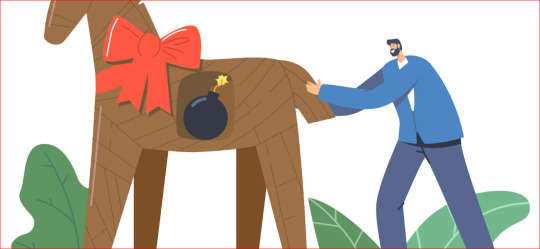
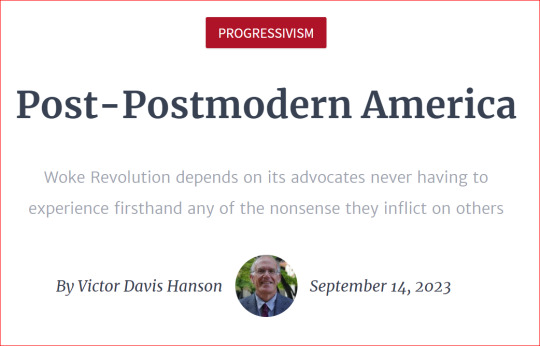
When the progressive woke revolution took over traditional America, matters soon reached the level of the ridiculous.
Take the following examples of woke craziness and hypocrisy, perhaps last best witnessed during Mao Zedong’s Cultural Revolution.
The Biden administration from its outset wished to neuter immigration law. It sought to alter radically the demography of the U.S. by stopping the border wall and allowing into the United States anyone who could walk across the southern border.
Over seven million did just that. Meanwhile, Biden ignored the role of the Mexican cartels in causing nearly 100,000 ANNUAL American fentanyl deaths.
Then border states finally wised up.
They grasped that the entire open-borders, “new Democratic majority” leftwing braggadocio was predicated on its hypocritical architects staying as far away as possible from their new constituents.
So cash strapped border states started busing their illegal aliens to sanctuary blue-state jurisdictions.
Almost immediately, once magnanimous liberals, whether in Martha’s Vineyard, Chicago, or Manhattan, stopped virtue-signaling their support for open borders.
Instead, soon they went berserk over the influx.
So now an embarrassed Biden administration still wishes illegal aliens to keep coming but to stay far away from their advocates—by forcing them to remain in Texas.
That means the president has redefined the US. border. It rests now apparently north of Texas, as Biden cedes sovereignty to Mexico.
Precivilizational greens in California prefer blowing up dams to building them.
They couldn’t care less that their targeted reservoirs help store water in drought, prevent flooding, enhance irrigation, offer recreation, and generate clean hydroelectric power.
Now an absurd green California is currently destroying four dams on the Klamath River. In adding insult to injury, it is paying the half-billion dollar demolition cost in part through a water bond that state voters once thought would build new—not explode existing—dams.
The Biden administration is mandating new dates when electric vehicles will be all but mandatory.
To prove their current viability, Energy Secretary Jennifer Granholm led a performance art EV caravan on a long road trip.
When she found insufficient charging stations to continue her media stunt, she sent a gas-powered car ahead to block open charging stations and deny them to other EVs ahead in line.
Only that way could Granholm ensure that her arriving energy-starved motorcade might find rare empty charger stalls.
In some California charging stations, diesel generators are needed to produce enough “clean” electricity to power the stalls.
The state has steadily dismantled many of its nuclear, oil, and coal power plants. It refuses to build new natural gas generation plants.
Naturally, California’s heavily subsidized solar and wind plants now produce too much energy during the day and almost nothing at night.
So the state now begs residents to charge their EVs only during the day. Then at night, Californians may soon be asked to plug them in again to transfer what is left in their batteries into the state grid.
Apparently only that way will there be enough expropriated “green” electricity for 41 million state residents after dark.
One of the loudest leftist voices to defund the police, and decriminalize violent crimes in the post-George Floyd era, was Shivanthi Sathanandan, the 2nd Vice Chairwoman of the Minnesota Democratic-Farmer-Labor Party.
She was recently not shy about defunding: “We are going to dismantle the Minneapolis Police Department. Say it with me. DISMANTLE.”
But recently the loud Sathanandan was a victim of the very crime wave she helped to spawn.
Four armed thugs carjacked her automobile. They beat her up in front of her children at her own home, and sped off without fear of arrest.
The reaction of the arch police dismantler and decriminalizer on her road to Damascus?
The now bruised and bleeding activist for the first time became livid that criminals had taken over her Minneapolis: “Look at my face. REMEMBER ME when you are thinking about supporting letting juveniles and young people out of custody to roam our streets instead of HOLDING THEM ACCOUNTABLE FOR THEIR ACTIONS.”
Andrea Smith was an ethnic studies professor at the University of California, Riverside. But now she has been forced out after getting caught lying that she was Native American.
Prior to her outing, she was well known for damning “white women” (like herself) who opted to “become Indians” out of guilt, and (like her) for careerist advantage.
The common theme of these absurdities is how contrary to human nature, impractical, and destructive is utopian wokism, whether in matters of energy, race, crime, or illegal immigration.
There are two other characteristics of the Woke Revolution.
One, it depends solely on its advocates never having to experience firsthand any of the nonsense they inflict on others.
And two, dangerous zealots with titles before, and letters after, their names prove to be quite stupid—and dangerous.

10 notes
·
View notes